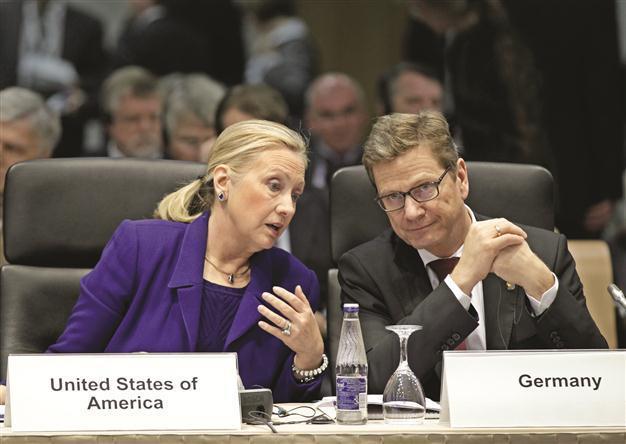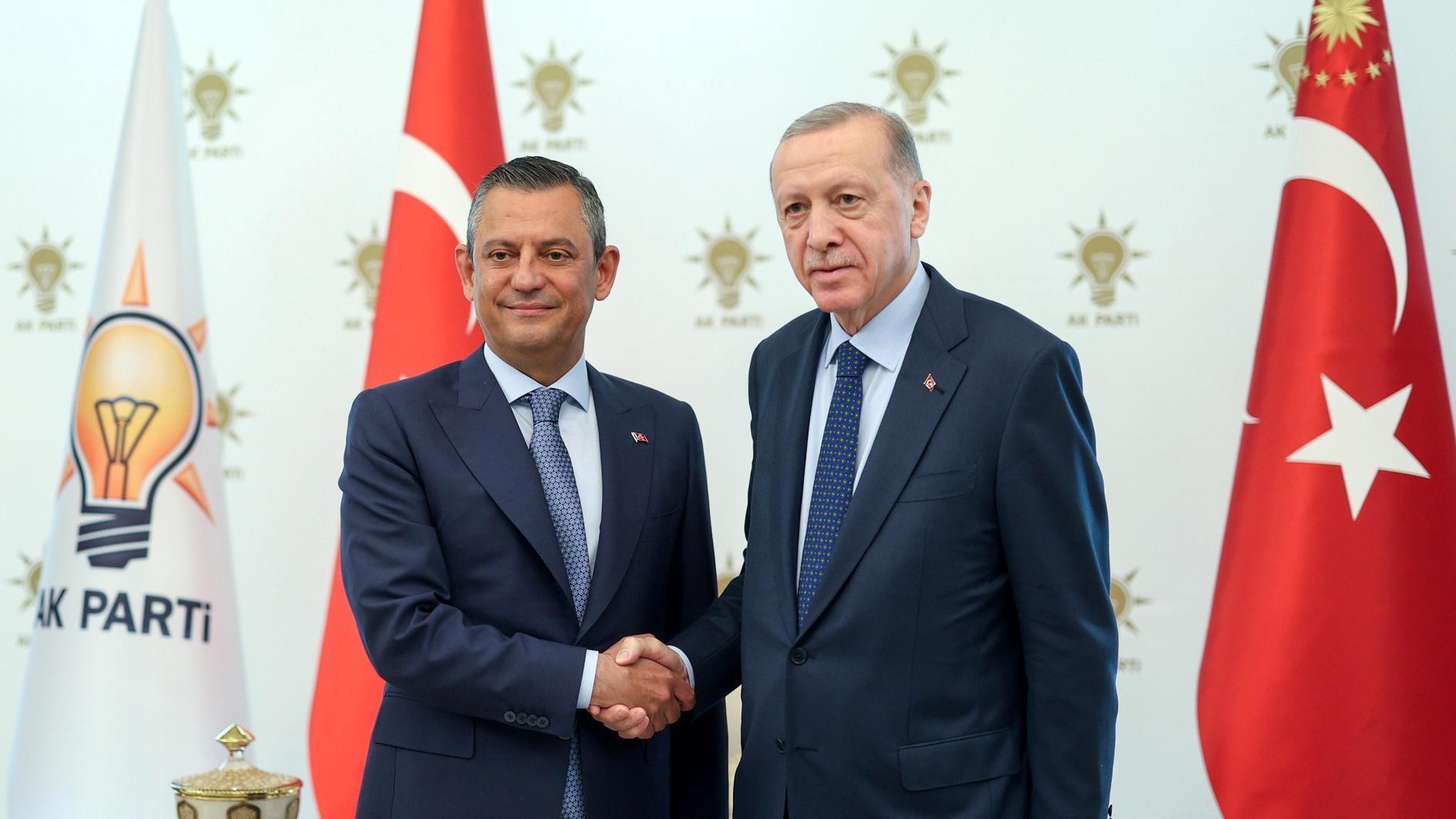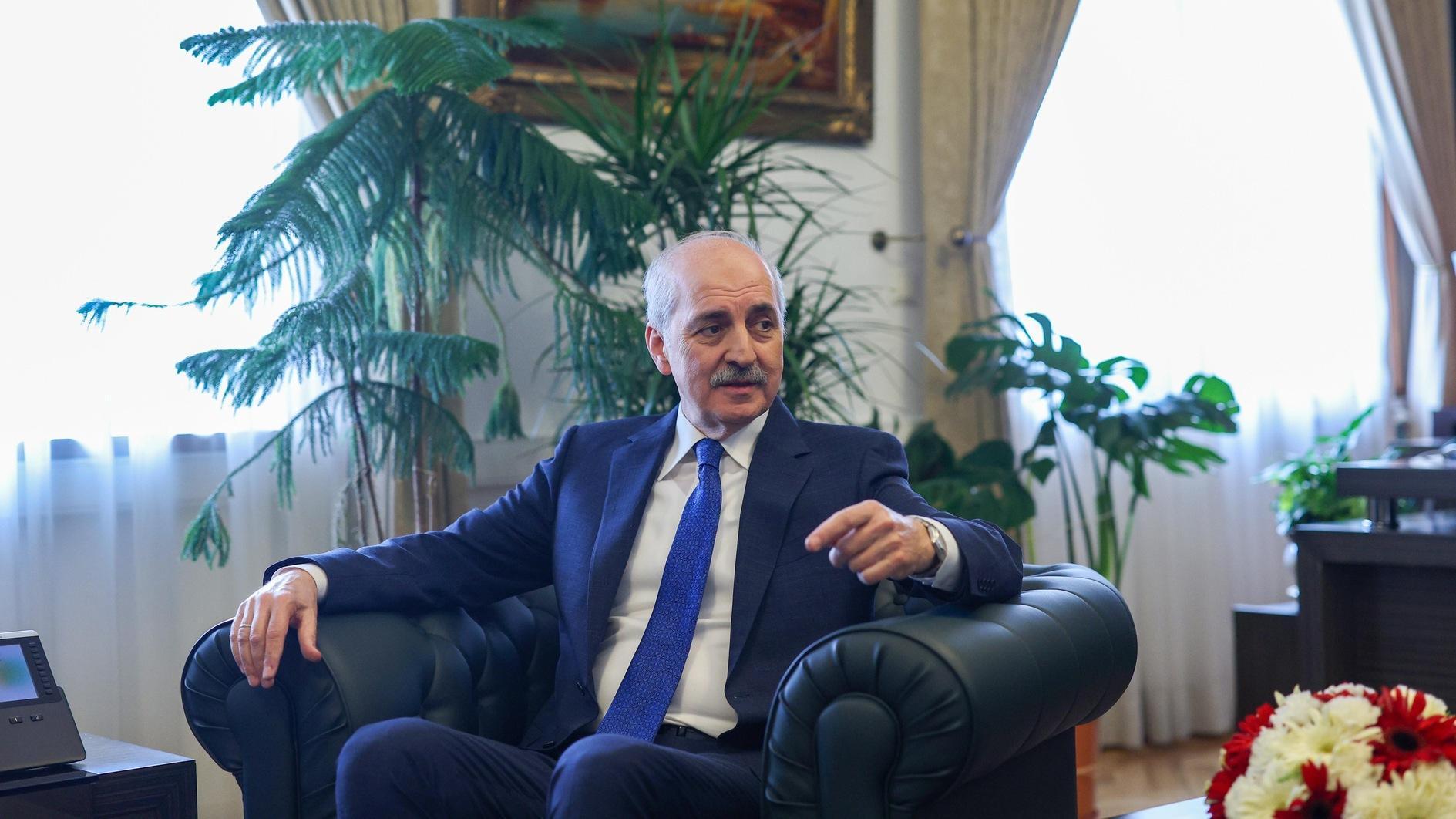OSCE fails to accept US, EU declaration
VILNIUS / ISTANBUL

U.S. Secretary of State Hillary Rodham Clinton (L) confers with German Foreign Minister Guido Westerwelle during the OSCE conference. AFP photo
The U.S. and EU expressed regret Dec. 7 after the Organization for Security and Co-operation in Europe (OSCE) failed to accept a declaration promoting human rights and media freedom due to one member’s objection.Turkish diplomatic sources did not object the OSCE decision. The declaration reportedly targeted Turkey, Russia and Belarus for their human rights and press laws.
In closing remarks at a meeting of the OSCE in Vilnius, Lithuania, U.S. Ambassador Ian Kelly expressed his concern consensus was not reached on a declaration supporting online freedoms, Agence France-Presse reported yesterday.
“Unfortunately, this decision was never even discussed in the preparatory committee, and discussions on enhancing journalists’ safety floundered – both due to objections by one participating state,” Kelly said. The European Union representative also said there was “deep concern in the lack of progress in the human rights dimension.”
A senior U.S. official said the U.S., Canada, Sweden and the Netherlands issued a common declaration on freedom of press, displaying uneasiness over reporters’ conditions in Turkey, Russia, Belarus and Central Asia, according to the daily Hürriyet.
Meanwhile, a Turkish diplomat who wanted to remain anonymous told the Hürriyet Daily News yesterday that Turkey did not object to the declaration. A senior Western diplomat who spoke on condition of anonymity told journalists Moscow’s position prevented a decision to discuss rights issues. Instead, discussion in the OSCE focused on security and political issues. “The fact that we did not get a single decision in the human dimension suggests that this was all part of their policy to rebalance the OSCE,” the diplomat said.
However, Russian OSCE representative Andrey Kelin said his country’s proposals on enhancing the OSCE as a security community were “simply ignored in an unacceptable way.” OSCE chairman Lithuanian Foreign Minister Audronius Azubalis said he was disappointed over the lack of consensus over human rights issues but stressed the OSCE had managed to make progress on relations with Afghanistan and North Africa.
Comprised of 56 states from Europe, Central Asia and North America, the OSCE is the world’s largest regional security organization.
















